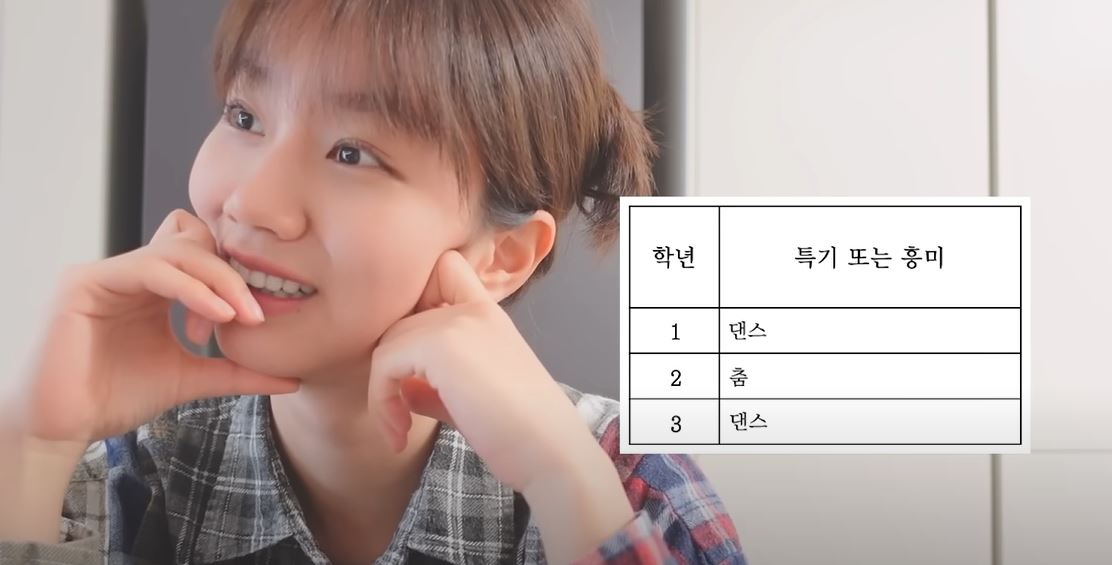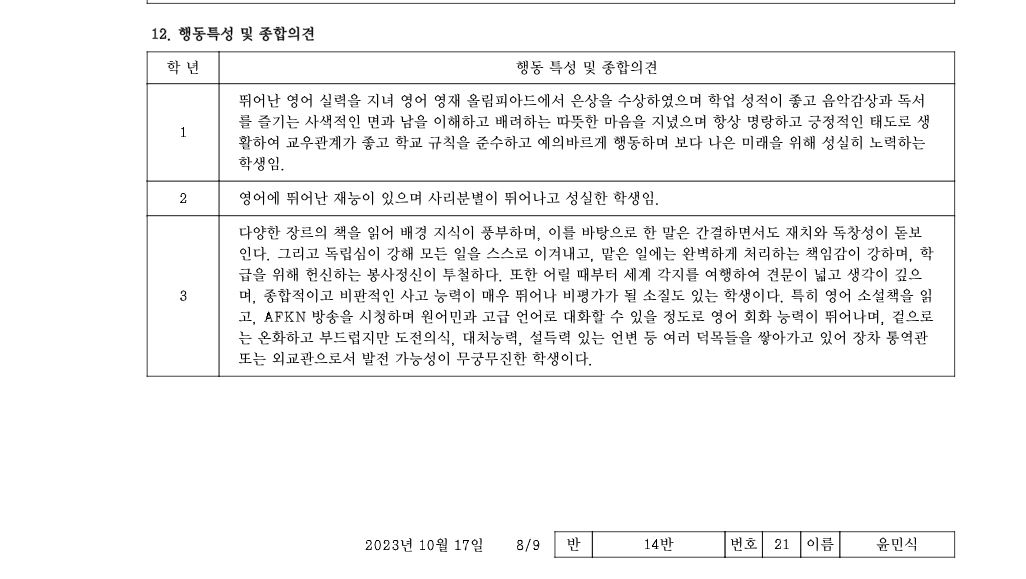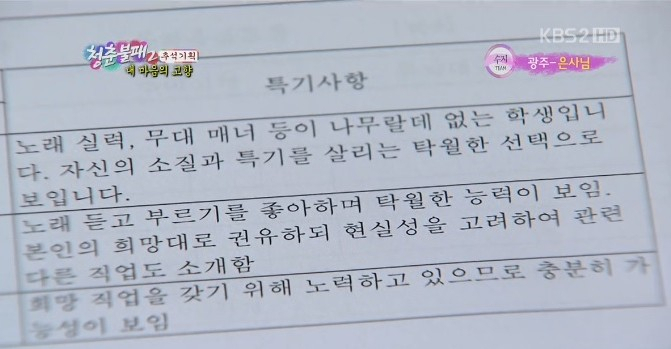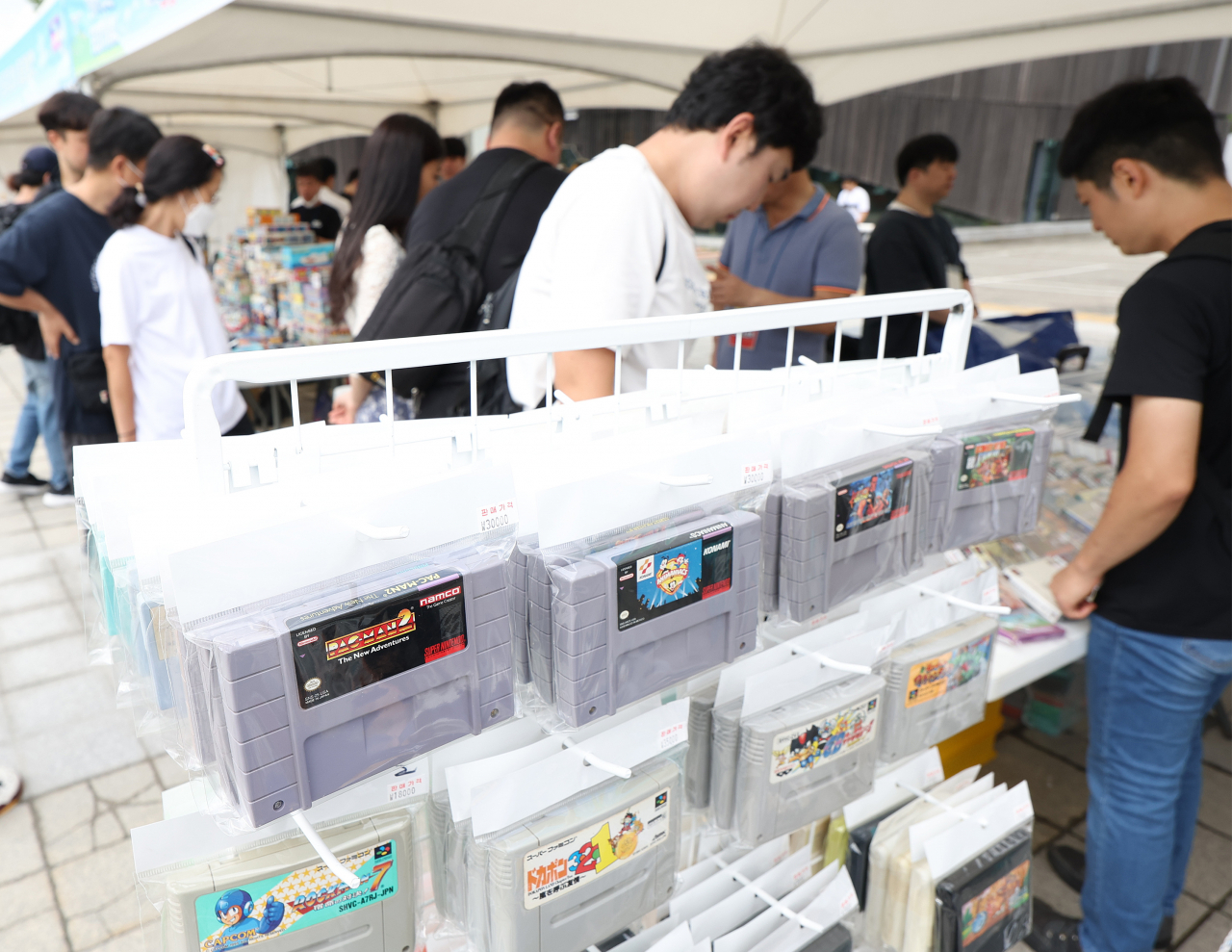New fad uncovers old school transcripts for dose of nostalgia
Experts suggest economic, social hardships may lead young people to look to past
By Yoon Min-sikPublished : Oct. 17, 2023 - 16:06

Issuing and sharing one’s old school transcripts is a new social media fad in South Korea, as the retro craze continues among younger generations.
According to the Ministry of Education, 2.85 million school transcripts were issued between July and September of this year, marking a 6.1-fold increase compared to the same period last year.
While requests for transcripts are typically made for practical purposes such as job or college applications, this sudden surge is primarily attributed to a different motivation: a curiosity to rediscover one’s own past through the old school records.
School transcripts in South Korea have a section where the homeroom teacher leaves a short comment about each student. This offers a hint of how a particular child was perceived by teachers as a student, and unique insight into one’s childhood.
Childhood records, a few clicks away
The rise of this trend was facilitated by the convenience of online transcript issuance.
With just a few clicks at Government24, a civil service portal, anyone who graduated from high school here since 2003 can have their records issued online.
Those who went to school before that must visit the school itself or regional education or administrative offices to request physical issuance of their transcripts. School records are preserved for 50 years.
This reporter’s school transcripts show that teachers saw me as being “polite,” that I “read a lot of books” and as “fluent in English.” Apart from English proficiency, these attributes are among the most frequently used descriptions in teachers' comments.

But some transcripts for celebrities have noted discernible characteristics, which perhaps indicate they possessed unusual qualities from an early age.
For example, the sixth grade teacher of K-pop icon IU wrote that she was kind and “well aware of the physical and psychological changes that boys and girls in puberty go through,” of all things.
Actor and singer Bae Suzy was praised by her middle school teachers as someone who “excelled in singing,” and that her efforts and talents made for bright prospects for her ambitions.

Earlier this month, another K-pop star, Hyeri, joined the fad by sharing on YouTube the content in her school transcripts. The records showed that her childhood dreams in middle school went from being a doctor to a teacher and again to a flight attendant, but her self-introduced talent and hobby was dancing throughout all three years.
“It's been 10 years since I've looked at the transcript. ... It's really amazing that a person's characteristics are reflected in such young days,” she said in the video.
Looking up one’s school transcript is only among the latest of the retro-themed fads that has fascinated the country in recent years.
Retro recent past
While the retro craze has been ongoing for a while, 28-year-old Park Yu-ri recently got into it when items and content from her own childhood, specifically the 2000s, emerged in mainstream media.
“(As for) the previous (retro) content (from the 1980s and 1990s), I followed them for fun, but I never really got to be nostalgic over it. But now things that were popular when I was little -- the clothing, the hair, the songs -- are back in style, which reminds me of when I was young.”
Like Park, many younger Koreans in their 20s and early 30s are fueling the revival of fashion, culture and accessories from the turn of the 21st century, commonly referred to here as Y2K, referring to the year 2000. Fond memories of the early 2000s are also at the heart of the nostalgic trend.
Among her favorite retro content is the “Hwang Eun-jeong” series on YouTube channel Beautyfool, depicting the school days of a 15-year-old girl in the 2000s -- which overlaps with Park’s own childhood. The channel has garnered over 760,000 subscribers in less than two years of existence.
Another popular YouTube series is “05 Is Back,” from Psick University, which includes videos based on funny situations by those obsessed with trends and the fashion of 2005. It remains among the best-known content of the channel, inducing SBS’ popular variety show "Running Man" to parody it.

Local scholars say that the challenging reality faced by young people in South Korea today is driving their desire to look back, rather than toward the future.
Jo Yeon-ju, a clinical psychologist at Taean-gun Health Medical, said an economic slump can play a part in retrospective nostalgia. “Under crisis, people tend to seek a sanctuary to soothe their troubled minds. In times of economic hardship, they tend to miss the times when they were full of hopes and dreams,” she said in a recent interview with local media. “It seems that the retro trend seems to reappear whenever the economic crisis looms.”
Lim Myung-ho, a professor of psychology and psychotherapy at Dankook University, said the people consuming the retro content wish to feel “the sense of fulfillment and self-confidence through experiencing pleasant and fun things in one’s past.”
“Many young people today feel anxiety over issues such as housing, jobs and marriage, leading them to reminisce over the past,” he said.











![[Kim So-hyun] The quiet taxi driver from Paris](http://res.heraldm.com/phpwas/restmb_idxmake.php?idx=644&simg=/content/image/2024/04/25/20240425050891_0.jpg&u=)







